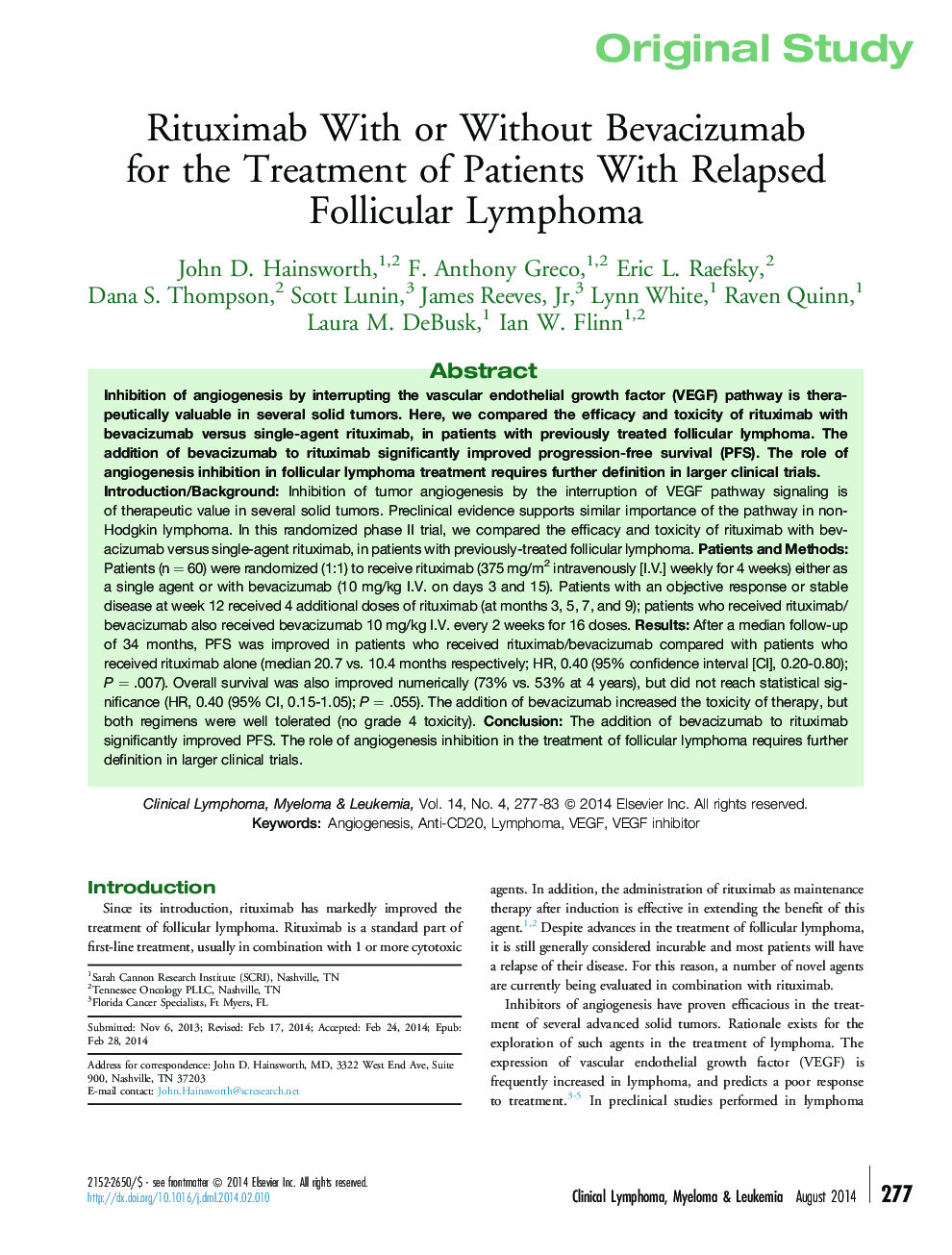| Article ID | Journal | Published Year | Pages | File Type |
|---|---|---|---|---|
| 5882881 | Clinical Lymphoma Myeloma and Leukemia | 2014 | 7 Pages |
Introduction/BackgroundInhibition of tumor angiogenesis by the interruption of VEGF pathway signaling is of therapeutic value in several solid tumors. Preclinical evidence supports similar importance of the pathway in non-Hodgkin lymphoma. In this randomized phase II trial, we compared the efficacy and toxicity of rituximab with bevacizumab versus single-agent rituximab, in patients with previously-treated follicular lymphoma.Patients and MethodsPatients (n = 60) were randomized (1:1) to receive rituximab (375 mg/m2 intravenously [I.V.] weekly for 4 weeks) either as a single agent or with bevacizumab (10 mg/kg I.V. on days 3 and 15). Patients with an objective response or stable disease at week 12 received 4 additional doses of rituximab (at months 3, 5, 7, and 9); patients who received rituximab/bevacizumab also received bevacizumab 10 mg/kg I.V. every 2 weeks for 16 doses.ResultsAfter a median follow-up of 34 months, PFS was improved in patients who received rituximab/bevacizumab compared with patients who received rituximab alone (median 20.7 vs. 10.4 months respectively; HR, 0.40 (95% confidence interval [CI], 0.20-0.80); P = .007). Overall survival was also improved numerically (73% vs. 53% at 4 years), but did not reach statistical significance (HR, 0.40 (95% CI, 0.15-1.05); P = .055). The addition of bevacizumab increased the toxicity of therapy, but both regimens were well tolerated (no grade 4 toxicity).ConclusionThe addition of bevacizumab to rituximab significantly improved PFS. The role of angiogenesis inhibition in the treatment of follicular lymphoma requires further definition in larger clinical trials.
